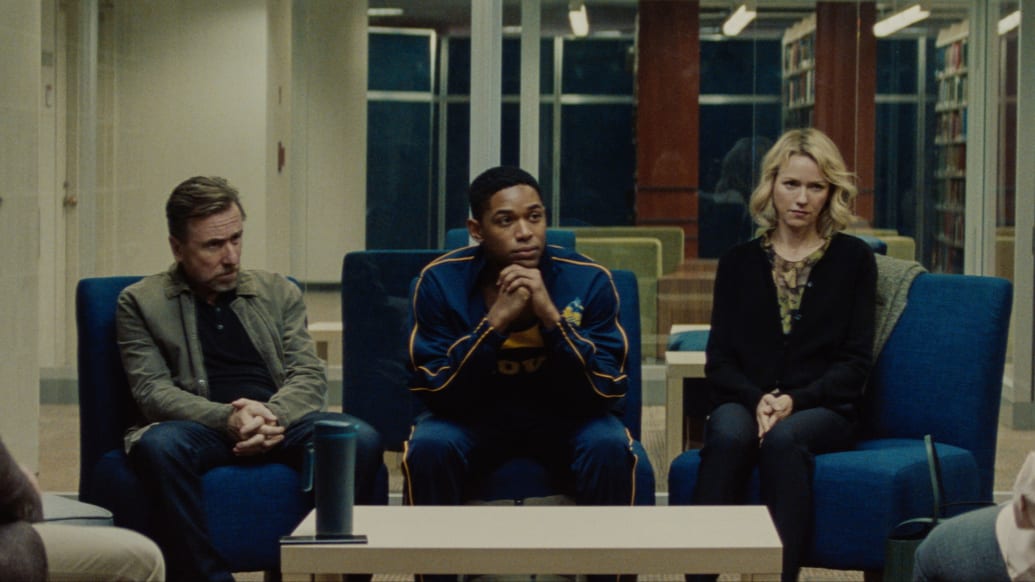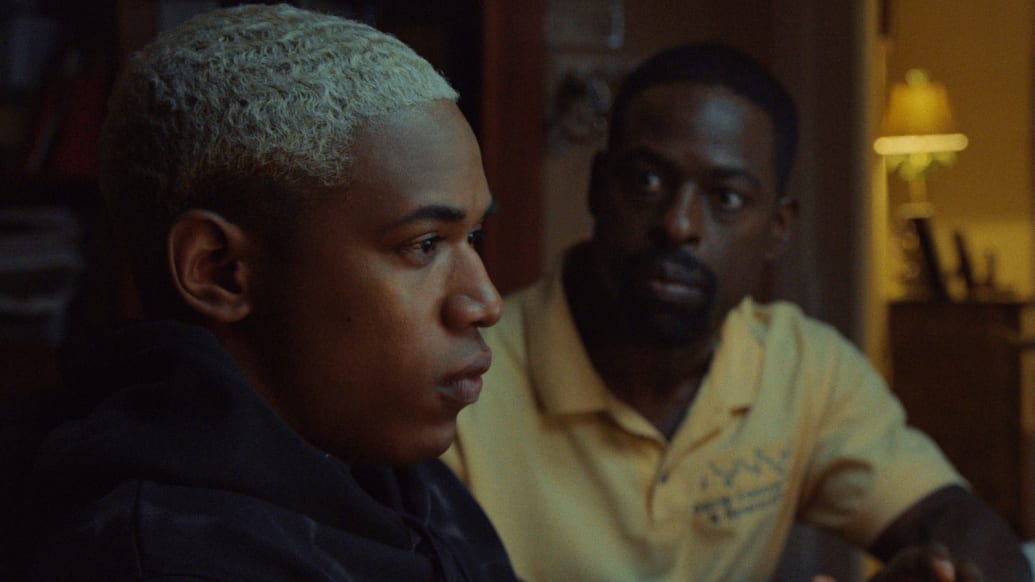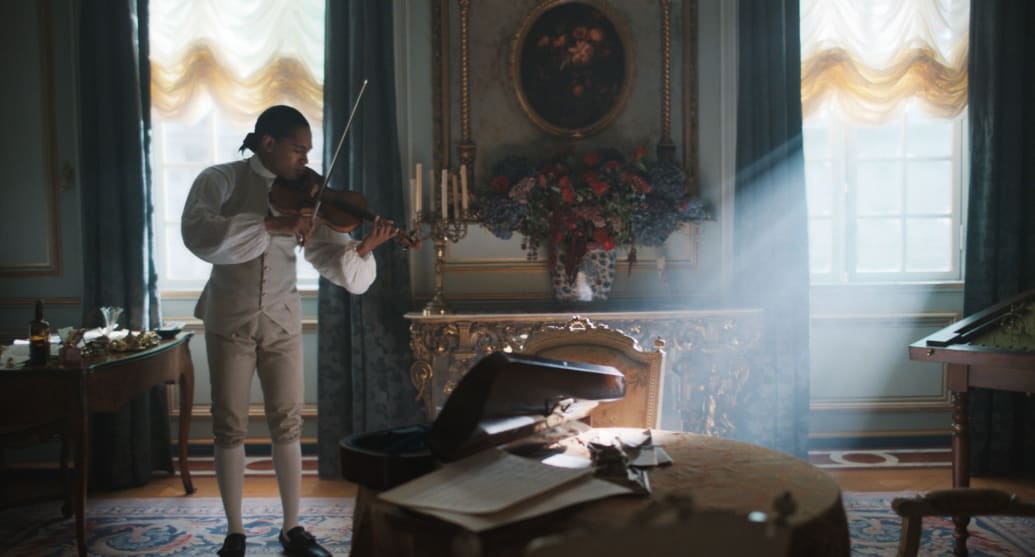Before entering acting, Kelvin Harrison Jr. He was on his way to becoming a musician. He grew up with parents gifted in music, played a number of instruments and trained under jazz drummer Jason Marsalis. In her new role knightHe returned to his musical roots, but faced two challenges: polishing his knowledge of the violin and becoming as (if not better) as Mozart.
Of course, the 28-year-old versatile actor already has the résumé of a virtuoso. He acted in prestige films (muddy, Trial of Chicago 7), breezy romantic comedies (High mark), emotionally heavy dramas (waves, Photograph), current social thrillers (Monsters and Men by Luce) and creepy horror features (night comes). He has also acted in various music projects such as: Cyrano, Elvisand the last one, knightHarrison Jr. plays the most high-profile role ever as famed French-Creole composer Joseph Bologne, Chevalier de Saint-Georges.
Directed by television master Stephen Williams (Loss, guard) and by atlanta author Stefani Robinson, knight He follows Bologne as he tries to make a name for himself in pre-French Revolution Paris. Historically, Bologne was considered “Black Mozart”, but knight depicts the virtuoso violinist as much more than this simple title. The film explores his fencing skills, his secret relationship with opera singer Marie-Josephine (Samara Weaving), his brief friendship with Queen Marie Antoinette (Lucy Boynton), and his rekindled relationship with his mother, Nanon (Ronke Adekoluejo).
Kelvin Harrison Jr. and Director Stephen Williams on the set of CHEVALIER.
Larry Horricks/Searchlight Pictures
Not only does Harrison Jr. have a diverse musical background himself, he applies a lively texture to even the most mundane line readings in the book. knight – “and of course the music will be amazing… BRAVE!” from the trailer. With his restrained, confident gait and piercing gaze, he elevates the biography to a compellingly animated portrait of one of classical music’s most obscure yet incredibly successful conductors.
Daily Beast’s Obsessed, Harrison Jr. spoke to beforehand. knightApril 21 movie screening. We discussed the process of relearning the violin, what it was like to do that stunning opening scene, and what she listened to for her next projects. Luce director Julius Onah’s biography of Jean-Michael Basquiat and the sequel to 2019’s live-action remake Lion King.
For this reason This isn’t the first time you’ve showcased your musical talents on the big screen. you have been too Cyrano, ElvisAnd High mark. I wonder what role music plays in your life and how it informs you as you approach this particular role. I understand you played trumpet and piano and you are also a child of musicians.
The truth is, I wanted to be a musician. The truth is, I wasn’t that good. The best thing in between is I’m going to be an actor, which technically is perhaps what I think I enjoy more. It feels more realistic to my artistic communication style, but my sneaky-sneak version is like, “I’m still going to be a musician.”
How much research and violin training was spent playing the chevalier? Was he more demanding than he thought?
It was much more demanding than I thought. I won’t lie. The first instrument I played was the violin. I was 6 or 7 or something like that. I was really good back then. Since I was the first head of the orchestra, I thought I would come into this being like this: “Okay, this will be very easy. I understand that. Muscle memory will return.” It didn’t happen.
I figured out how to practice. I understood the instrument from the intellectual [side]. I still needed to get my muscles back, as with everything else. Those five months required us to get six hours a day, six days a week—as much as possible—and get the job done. But yes, it was difficult.

Kelvin Harrison Jr. in Luce, 2019.
Neon
You’ve also played quite a few characters, like in this movie, who are talented but often feel pressured by their family or society to be assimilated and perfect in order to be successful and loved. This performance and its contents waves And Luce they all seem very spiritually connected to each other. I wonder what draws you to these kinds of roles.
I think what drew me to this is, to some extent, my experience. Honestly, I think a lot of people of color have experience, especially if you’re a bit of a singular in your field or want you to be someone. Luce is the best in school. Joseph is the best in Paris. Tyler [from Waves] I wish he was the best wrestler. His father also wants it because he wants his child to be. [the best]like Luce.

Kelvin Harrison Jr. on Waves.
A24
The thing is, there’s a lot of generational trauma. Unfortunately, people of color are sometimes like “The only way for me to be considered acceptable” – which is, Luce– “if I’m exceptional.” So is it a transactional relationship? What do you offer us? [That] It goes back to something like “Play the violin in the field and entertain us”. we saw this 12 years of slavery. This is our currency in some ways.
I can imagine that living in these characters and the arcs they go through is emotionally challenging. I actually remember attending a Q&A waves And I was really impressed to see you talk about how you needed therapy for a year after that experience. Since then, have you been able to find ways to take care of yourself as you handle these emotionally intense, very personal roles? How do you reconcile?
There was some naiveté in this process. I was like, “Okay, I want to do everything and get as immersed as possible to make sure I get the authenticity.” I remember that process waves It was really challenging because I was getting a lot of questions about whether that was the right thing to do, the amount of violence in that movie, and having a Black man representing it.
My argument was that I was neither interested in playing saints nor outright sinners. Humanity is both. We make mistakes. At the same time, I cannot try to preserve the image of Black by dehumanizing it. At the time, I was like, “I’ll do anything,” and I hurt myself in the process. “Am I acting? Or am I just trying to live it?” I think that’s the difference. I changed the version of things. I don’t do it all anymore.
I feel like the opening scene is a great introduction to Chevalier and a fun little dig at Mozart. Did you have a musical sequence or moment from the movie that you enjoyed shooting?
Probably the Mozart duel. This was so much fun. It took the longest. We started before we really knew the part. I used to listen to Michael Abels [who wrote the music for the on-screen performances], who chose each piece on the piano. I would dance around a chair and pretend to be Mozart in a dance studio to understand his choreography.

Courtesy of Searchlight Pictures
Then, frankly, learning the piece is so exciting, when you finally start getting certain parts of the cadenzas because you really feel like a rockstar. Then when Joe Prowen, who plays Mozart, took the stage, we did some choreography and came up with a language. It was a very interesting exercise for both actors and musicians. It became really fun when the audience was there to kind of witness it. It felt like a play rehearsal, here’s the game!
I imagine you did a lot for it.
It was all day. We shot that scene all day. My nails were bleeding but I wouldn’t change that for anything.
I’m sure you’ve been busy promoting this and working on other projects lately, but have you listened to or watched anything that has inspired you creatively lately?
I’m currently working on my next project, so I’m getting ready for it and there’s music involved. An unholy mix of Iggy Pop and Prince. This is what I’m doing right now.
I listen to a lot of Moses Sumney. Frankly, I love Moses. He is my friend but an amazing musician. In terms of movies, I currently only watch stuff for work because otherwise, unless I’ve watched something that really impressed me, I watch it most of the time. Big Brother all day.
Definitely. Reality TV can be an excellent way to distract your brain from it all.
Watching real people lock themselves up in a house to make half a million dollars is sometimes more inspired than I get from watching movies. It is difficult.
Keep being obsessed! Sign up for Daily Beast’s Obsessed newsletter and follow us Facebook, twitter, instagram And TikTok.